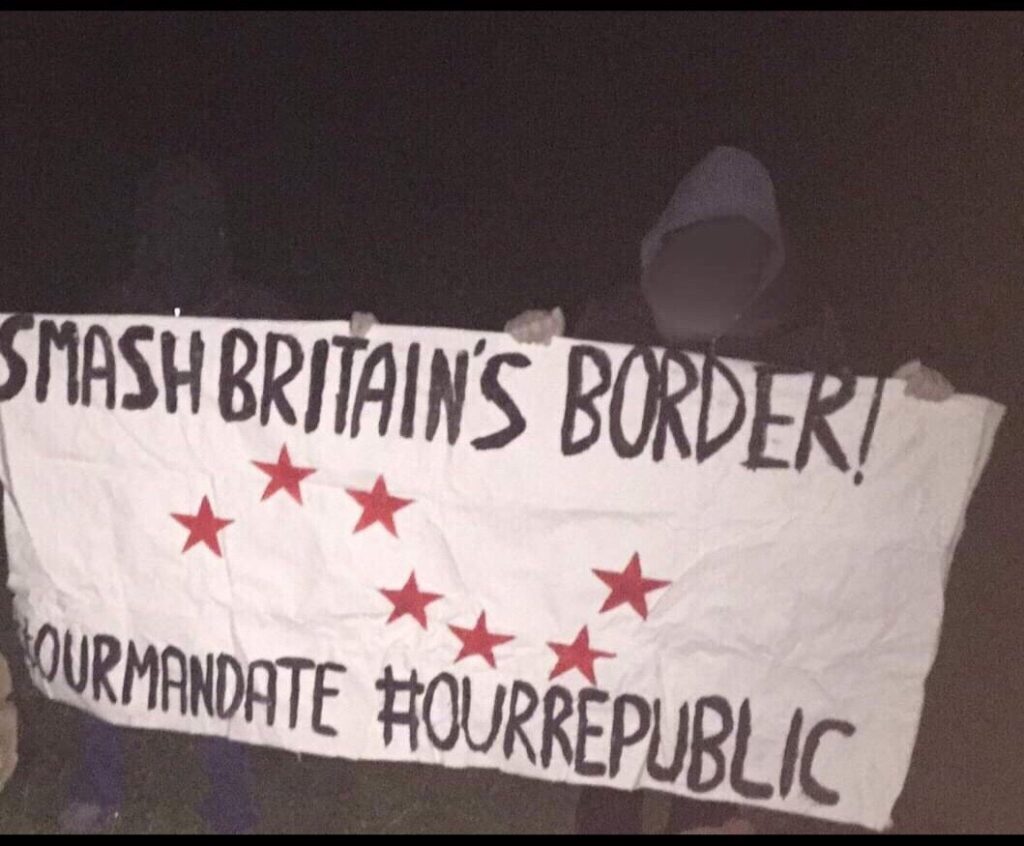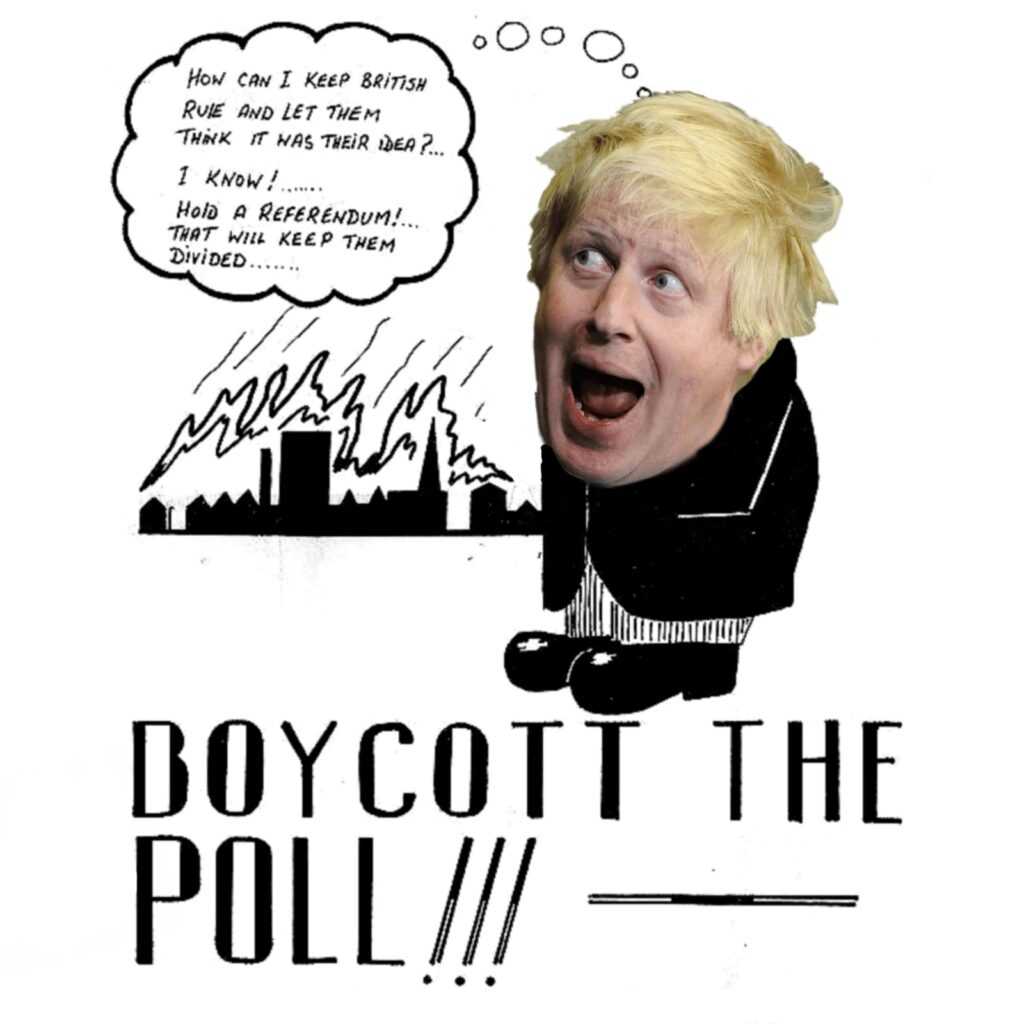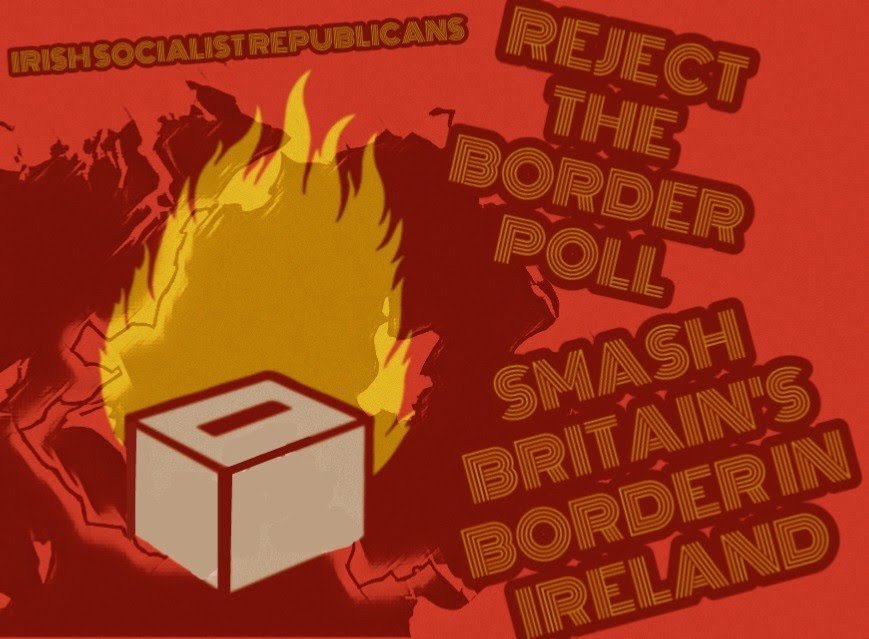This year will see the one hundredth anniversary of the establishment of “Northern Ireland” a British colonial state imposed on the Irish people and with it the partition of the historic Irish nation and people. The so called Government of Ireland Act 1920 created a Protestant parliament for a protestant people and a 26 county semi-colony. It was never voted on by any Irishman or woman, whether Green or Orange.
The six county state has fifty years of sectarianism and fifty years of war to celebrate this year. It was never accepted by the nationalist population with nationalists and Catholics being openly discriminated against in employment, housing and education since its foundation. Nationalists in the main did not vote in local elections or were not registered and of course were also discriminated when some did attempt to go to the polls.
Opposition to the six county state has been borne out by the fact that every decade since 1920 there has been an armed campaign against the state by Republican forces. All these campaigns have had the effect of making the legitimacy of the state completely undermined.

However the British state had always sought to accommodate the nationalist population in the running and defence of the state. At times the latent bigotry of the Orange state itself immediately after partition and leading up the sixties embarrassed the British state. Not least because they feared the back lash of an oppressed nationalist minority within the six counties.
Civil Rights and Revolution
What was initiated then in the 1960s was a struggle for the nationalist population for simple basic democratic rights which were being denied to them. What began as a campaign for simple civil, democratic rights developed into a revolutionary war which sought the destruction of the colonial state.
It was demonstrated in practise that the state was irreformable and that only a British withdrawal and the ending of partition could end sectarianism in Ireland. This could only be achieved by revolutionary means.
While the civil rights movement rocked the basis of the state and shook its core, a section of middle class Catholics during the civil rights campaign did not see their interests being advanced by the ending of partition and a United Ireland and actually benefitted from the British welfare states reforms in housing and education. They were willing to work within the loyalist state to end discrimination and improve their economic status. They fell short of calling for its destruction.
Brits Out!
The introduction of British troops onto the streets of six counties was recognition that the colonial state was irreformable and that the nationalist resistance could not be bought off with reforms and crumbs from the table. The entire state was deemed not only to the nationalist community but to the world to be an undemocratic, colonial bastard state which upheld British rule in Ireland by force of arms.
The situation in Ireland had turned from a situation of protest demanding democratic rights into a full scale revolutionary struggle which sought a revolutionary solution. A British intent to withdraw and the destruction of the Orange state.
Smash Stormont!
By 1972 Stormont had fell and London was in direct control of the six counties. The situation had developed into a revolutoanry situation yet there were still those who hung onto the concept that Stormont had to be made “democratic”, that once the Orange state fell nationalists would consolidate themselves as a political electoral force and British imperialism would simply wither away. They believed that the colonial state of “Northern Ireland” could be reformed out of existence.
The Republican movement at the time understood that the goalposts had shifted dramatically in the eyes of the nationalist people. That the nationalist people had regained their confidence after fifty years of subjugation and discrimination and that nothing else would suffice except the destruction of the state which they had up till that point only seen as an apparatus of coercion and of oppression and that their future lay only in its downfall.
What developed was a protracted guerrilla war with the demands being an end to British rule in Ireland. The British state made numerous attempts to co-opt a section of the leadership of the nationalist people into accepting the state, participating in it and promoting reforms within the confines of the British states constitutional authority.
One of the tactics they utilised to make the six county state look “democratic” was the Border Poll which they held in 1973 and which was boycotted by the nationalist community and Republican movement. The Border Poll was imply an exercise to promote the concept of the Unionist veto and fashion it in “democratic” jargon and deceit.
The Border Poll was not as much about achieving the right result for the British but about bringing the nationalist people into accepting the constitutional status of the six counties and have them work within the system to try and reform it out of existence. Of course any state, and especially a colonial state cannot be reformed out of existence and will not simply wither away.
Participation in a Border Poll is simply an oath of allegiance to imperialism. Like an “agreed Ireland” it is shifting the onus of responsibility from the British state who are deemed to be benign players in what is to the British state a squabble between different sections of Irish society. It further polarises the two communities in an already intentionally divided society.
Demographics are not destiny and the growth of a “Northern Irish” identity post-ceasefire belies the fact that a lot of Catholics in the six counties enjoy their standard of living. Demographics in Scotland also showed how it can work against any poll for independence when the older generation were worried about their pensions and other worries in a post UK Scotland. The biggest difference of course in the Scottish and Catalan referendums was that they were representative of the whole nation and not less than 20% of the country as it has been promoted with the Border Poll in Ireland.
An “agreed Ireland”
The “concept of an “agreed Ireland” is not a new one but one which has been promoted as an alternative to the sovereign, independent Irish Republic and is contained in the British Government of Ireland Act 1920. This concept has been promoted since partition using the mechanism of the unionist veto of consent/Border Poll. In fact under the Government of Ireland Act 1920 the two parliaments (colony and neo-colony) were linked by the council of Ireland. Representatives from both parliaments were to be sent to the Council to discuss issues of mutual interest. According to Lord Lexden British Government intended its “key function to be its work towards establishing a single parliament for the whole of Ireland”. Of course this parliament would have to suit the imperial interests of the British state.
This would be a devolved Irish parliament which would carry out the imperial wishes of the British state of “its own accord”.
In a recent article in the Irish Independent entitled ‘Referendum on a United Ireland is a democratic right’ Frances Black, a Free State senator stated “We are guided by the values of the Good Friday Agreement and dedicated to fostering mutual respect and equality between all views and traditions that share this island. We are also democrats who believe the people here should be able to decide their own destiny and we should be afforded the right to choose if we want unity or partition.”
In other words, the aim of the political class in Ireland is make partition and British rule “democratic”.
No longer is partition an aberration. An illegal act. A crime against the historic Irish nation and people. No longer should British rule be opposed.
The Peace Process and the Good Friday Agreement with the Border Poll as its kernel is simply a long held strategy by the British government since the Government of Ireland Act 1920 to make partition acceptable and “democratic”.


